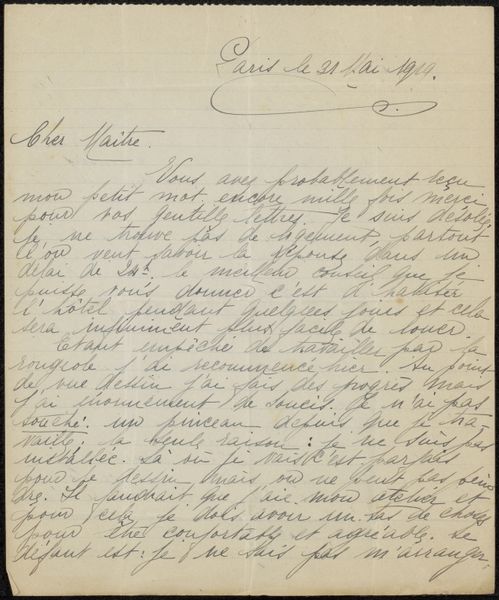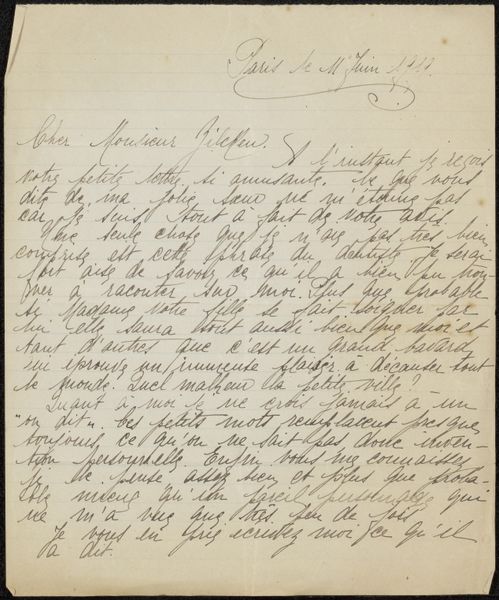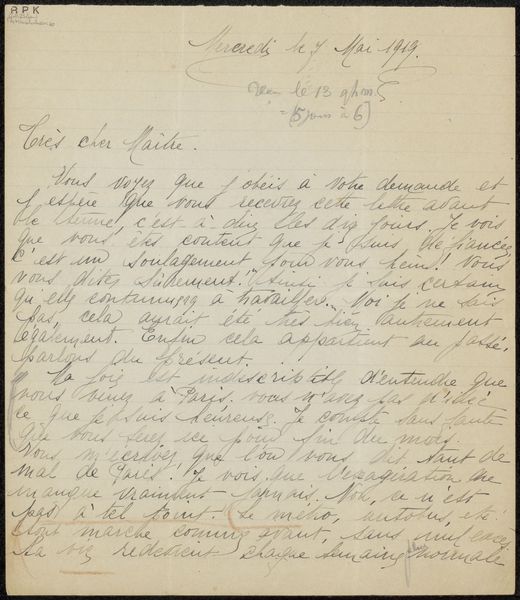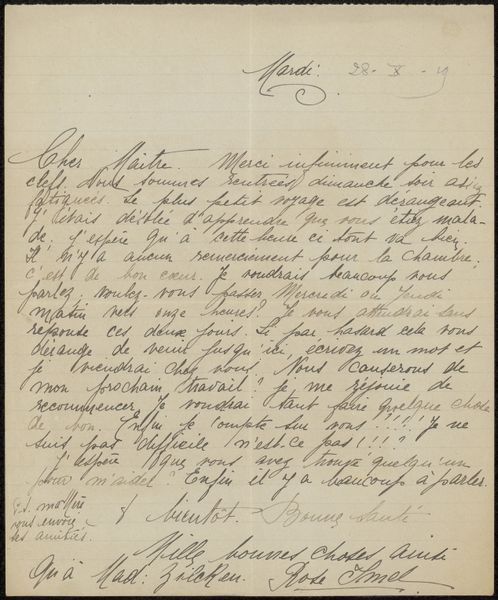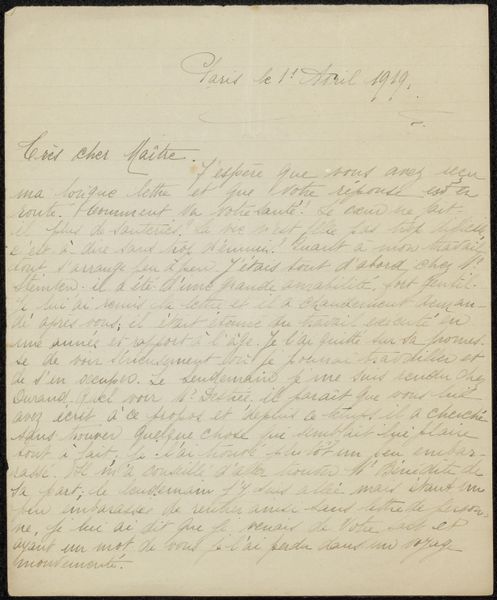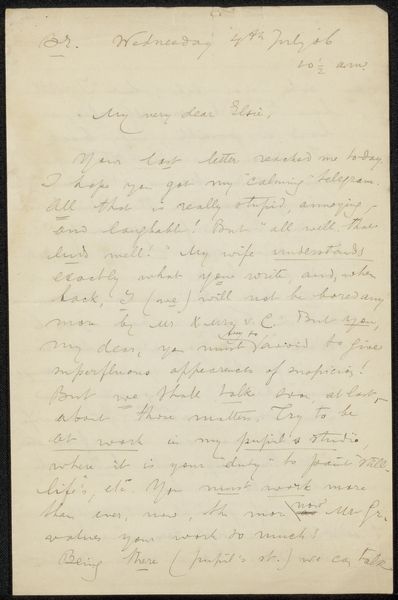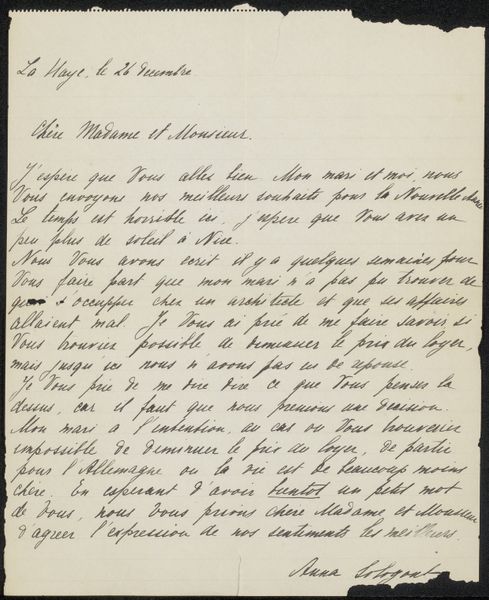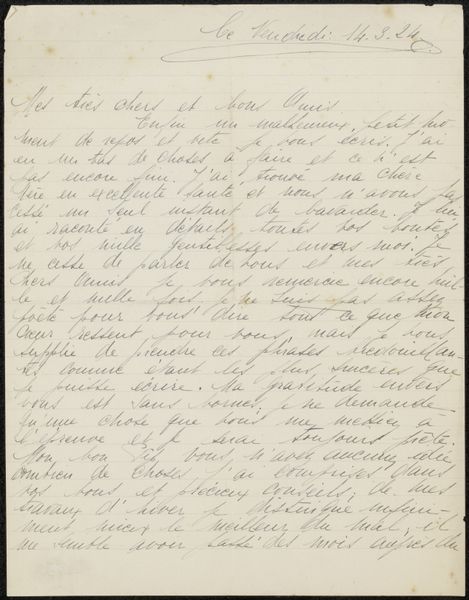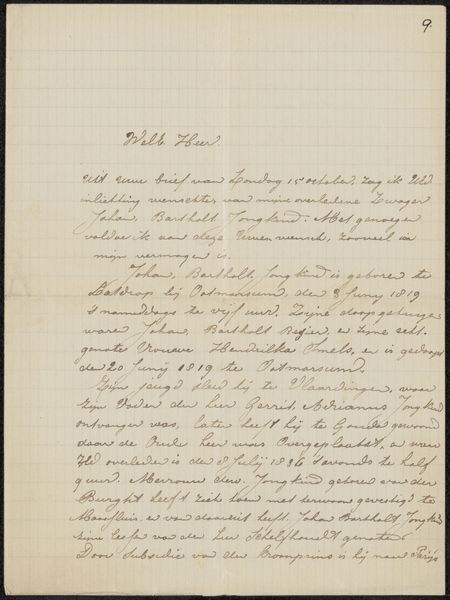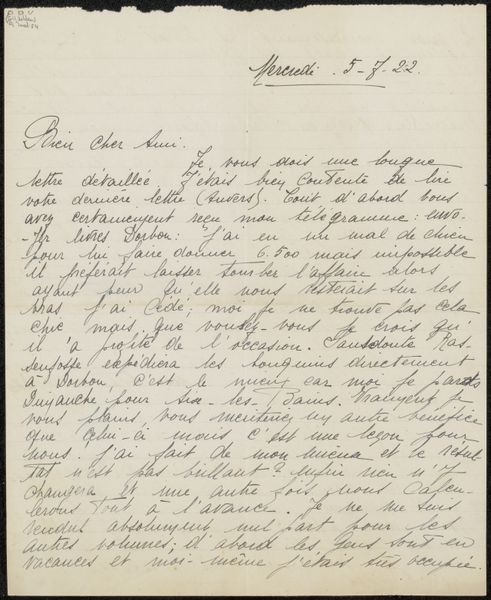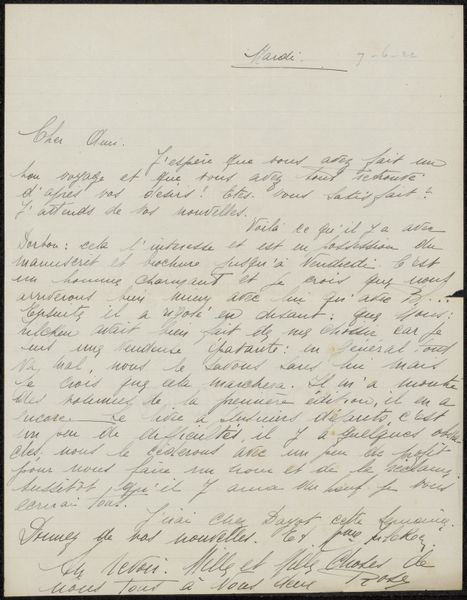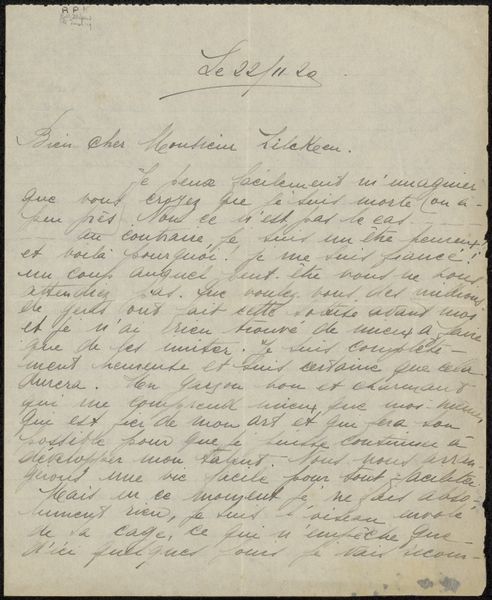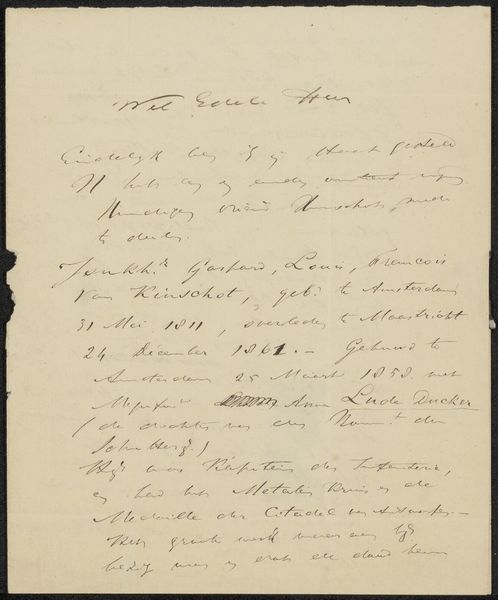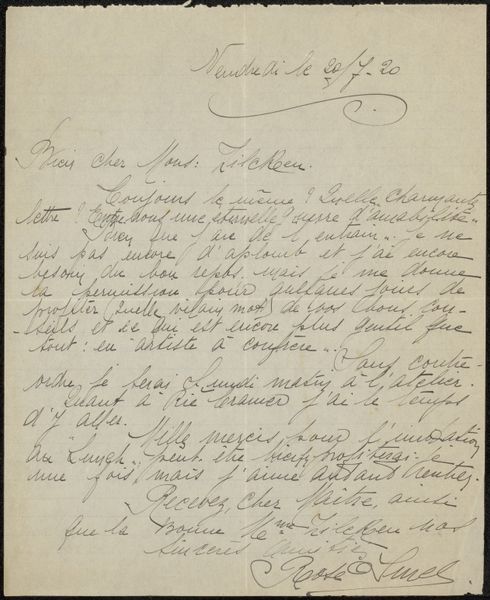
drawing, paper, ink, pen
#
drawing
#
aged paper
#
old engraving style
#
hand drawn type
#
paper
#
personal sketchbook
#
ink
#
hand-drawn typeface
#
ink drawing experimentation
#
pen-ink sketch
#
pen work
#
sketchbook drawing
#
pen
#
sketchbook art
#
calligraphy
Copyright: Rijks Museum: Open Domain
Curator: So, here we have "Brief aan Philip Zilcken," likely from 1919, an ink drawing on paper. The artist is Rose Imel. The letter is faded with age. What are your initial impressions? Editor: It feels very intimate, almost like peeking into someone's personal thoughts. The handwriting is beautiful but also makes it feel fragile, ephemeral. What strikes you most when you look at it? Curator: I am immediately drawn to the calligraphic nature of the writing. It isn't simply conveying information; the act of writing itself becomes a form of visual expression, embedding the meaning within the script itself. Each stroke carries an emotional charge and evokes another layer of memory. Editor: It's interesting that you mention the writing itself being part of the artwork. What can we gather about the artist’s intention by observing these visual symbols of writing in the letter? Curator: The deliberate flourishes and variations in pressure suggest a careful consideration of form. In that era, handwriting was more cultivated and consciously styled. What do you make of the content within the artwork itself, which appears to be in French? Editor: Right. It looks like it describes arriving in Dunkerque amidst a storm. What might the choice of French suggest, particularly concerning cultural identity or artistic expression at the time? Curator: Considering the historical context, the choice of French could imply a connection to the French art world. It could also speak to the artist's social standing, the symbolism behind this could indicate Imel's engagement with a wider artistic community, placing their work within a European context. It suggests a bridging of cultures through language. Editor: So it becomes more than just a letter; it becomes a visual representation of cultural exchange and personal connection through artistic style and handwritten expression. Thanks, that gives me a lot to think about. Curator: Precisely! The layers of meaning embedded within such an artifact make it endlessly fascinating, an echo of history through visual expression.
Comments
No comments
Be the first to comment and join the conversation on the ultimate creative platform.
